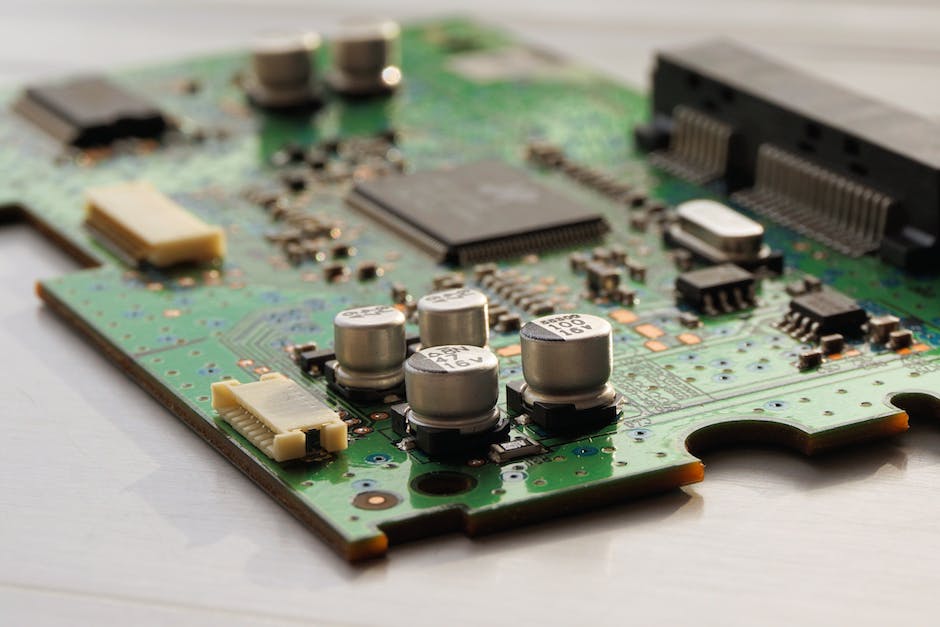Residing at the bleeding edge of technology, quantum computing has emerged as a profound pivot in the realm of science, redefining our understanding of computational capacities. Shedding the limitations of classical computing, the quantum realm explores a new world of possibilities, brimming with cryptic principles such as qubits, superposition, and quantum entanglement. This profound exploration unfurls the evolutionary journey of quantum computing, its real-world applications in numerous sectors, the stumbling blocks it currently confronts, and the anticipation of its future.
The Concept of Quantum Computing
Quantum Computing: An Overview
Quantum computing is an advanced model of computation that leverages the principles of quantum mechanics to process information. Unlike classical computers that use bits (0s or 1s) as their smallest units of data, quantum computers make use of quantum bits, or qubits. The crucial distinction is that while classical bits must be in one state or another, qubits can exist in any combination of states simultaneously, due to a quantum phenomenon known as superposition.
The Building Blocks: Qubits
Qubits, the essential parts of a quantum computer, are slightly similar to regular bits used in classical computing in that they can be in the state of 0s and 1s. However, qubits differ largely because they can also exist in a state that is a superposition of 0 and 1. In simple terms, they can be both a 0 and a 1 at the same time. This ability to exist in multiple states simultaneously allows quantum computers to process vast amounts of data at a much faster rate compared to classical computers.
The Phenomenon of Superposition
Superposition, a fundamental concept in quantum computing, refers to the quantum phenomenon where a quantum system can exist in multiple states or places at the exact same time. In the realm of quantum computing, this implies that a qubit can be in a state of 0, 1, or anything in between simultaneously. Because of superposition, a quantum computer with several qubits in superposition can crunch through a vast number of potential outcomes at once, providing the potential for incredibly fast, parallel data processing.
The Principle of Quantum Entanglement
Another integral concept in quantum computing is quantum entanglement – a unique quantum phenomenon where two or more qubits become interlinked, and the state of one qubit is immediately connected to the state of the other, regardless of the distance separating them. This inseparable connection means that the state of an entangled qubit can instantly influence the state of another, no matter how far apart they are. This phenomenon allows quantum computers to perform complex calculations with much higher efficiency than their classical counterparts.
Different Worlds: Quantum Computing and Classical Computing
Unlike classical computers, which process data one piece at a time in a sequential format, quantum computing operates from an entirely different playbook. Leveraging physics principles like superposition and entanglement, quantum computers are armed with the capacity to work on several quantum bits or qubits concurrently. The result is an unprecedented level of processing power, opening the door to solving convoluted problems in a much more efficient way – problems that would be difficult, if not impossible, for classical computers to tackle. Nonetheless, quantum computing is still an emerging technology, with a considerable journey ahead before it becomes commonplace.

Photo by rgrzybowski on Unsplash
Evolution and Development of Quantum Computing
Quantum Computing: Drawing from Quantum Mechanics
In terms of its age, the concept of quantum computing is relatively new, but it owes much of its existence to the groundbreaking field of Quantum Mechanics which emerged in the early 1900s. Quantum Mechanics, a cornerstone of Physics, illuminates the peculiar behaviors of atomic and subatomic particles, suggesting that they can coexist in numerous states simultaneously, a phenomenon known as superpositions.
Paving the Way for Quantum Computing: Key Theoretical Advancements
The development of quantum computing truly started in the early 1980s with pioneers such as Paul Benioff and Yuri Manin. However, it was Richard Feynman, the respected physicist, who first proposed the concept of a quantum computer in 1982. He suggested that a quantum system could be simulated by a universal quantum computer.
In 1994, Peter Shor, a mathematician at Bell Labs, developed the first quantum algorithm. It demonstrated that quantum computers could solve certain problems exponentially faster than traditional computers. This was a landmark moment as it proved the potential superiority of quantum computing.
From Theory to Practice: Constructing the Quantum Computer
The realization of a functional quantum machine remained elusive until 1998 when a rudimentary 2-qubit (quantum bit) quantum computer was built by a team at Oxford University. Unlike the binary bits of traditional computers that have a state of either 0 or 1, qubits can exist in a state of superposition, allowing them to perform multiple calculations simultaneously.
Since then, multiple significant advancements have been made, including the development of quantum error correction codes and the creation of larger, more stable quantum systems.
Key Researchers in Quantum Computing
Over the years, many researchers have contributed to the field of quantum computing. Apart from the pioneer Richard Feynman and Peter Shor, other notable figures include David Deutsch, who is known for formulating the concept of a universal quantum computer, and Alexei Kitaev, who contributed to the development of topological quantum computers.
The Current State of Quantum Technology
At present, the quantum computing industry is driven by both academia and private corporations. Top universities around the world are conducting extensive research into Quantum Mechanics and Quantum Computing.
Meanwhile, tech giants like IBM, Google, and Microsoft are investing heavily in the development of quantum hardware and software. Google made headlines in 2019 with its claim of “quantum supremacy” – when a quantum computer performs a task no classical computer can achieve within a reasonable timeframe.
Today, smaller quantum computers are now commercially available. However, there still remain significant challenges. Quantum computers require extremely cold environments to function and have a high error rate. Yet, relentless research continues into making quantum computing a practical and reliable technology.
Peering into the Future: The Revolutionary Impact of Quantum Computing
Quantum computing, undoubtedly one of the most significant scientific advancements in humanity’s history, is on a trajectory that will redefine problem-solving as we know it. Although quantum computers aren’t yet equipped to overtake their classical counterparts, they possess unmatched potential for resolving intricate conundrums, thereby transforming fields like cryptography, optimization, and medicine. With ongoing research driving groundbreaking innovation, we are inching closer to a future where the limitless potential of quantum computing is fully unleashed.

Applications of Quantum Computing
The Intersection of Quantum Computing and Cryptography
Present-day digital security hinges heavily on cryptography, that primarily relies on algorithms which stand on the challenge of factoring large prime numbers. Quantum computing, however, flips the script. With the ability to solve such problems exponentially faster than classical computers, it puts current encryption methods at risk, and in the same breath, presents opportunities for developing superior security systems. This dichotomy manifests itself in the form of quantum cryptography and quantum key distribution (QKD), which offer an unmatched security frontier. QKD permits two parties to exchange a unique secret key, known only to them, facilitating the safe encryption and decryption of messages.
Quantum Computing in Drug Discovery
The process of drug discovery involves a lot of trial and error, and it’s currently a very time-consuming and costly process with a lot of computational modeling involved. Quantum computers, with their ability to process and analyze vast amounts of data rapidly, have the potential to revolutionize the healthcare and pharmaceutical industries. Researchers believe that quantum computers could simulate the structure of new drugs and analyze genetic data more efficiently than traditional computers, significantly reducing the time and cost of bringing new drugs to market.
Quantum Computing in Weather Forecasting
Quantum computers’ potential applications in weather forecasting are promising. While classical simulations may take hours or even days to run a complex weather scenario, a quantum computer could potentially perform the same simulation in seconds or minutes. This accuracy and speed could significantly improve short-term weather predictions and give earlier warning of severe weather episodes such as hurricanes and tornadoes, potentially saving lives and property.
Quantum Computing in Financial Modeling
Financial institutions continuously assess risk, simulate economic scenarios, optimize portfolios, and price derivatives. These tasks involve complex calculations that can take a long time or may even be impossible to perform on classical computers. Quantum computing could make these calculations feasible and in near real time, profoundly improving the efficiency and effectiveness of investment and risk management strategies.
Exploring the Transformative Potential of Quantum Computing
Quantum Computing is a futuristic technology poised to significantly shift the landscape of various industries with its unparalleled potency to solve intricate problems at an exquisite speed, which traditional computing technologies cannot match. Its magnified computation power hints at far-reaching impacts ranging from inventing new cryptographic methods and speeding up drug discovery to fine-tuning weather forecasts, optimizing financial market strategies and beyond. The trajectory of quantum technology advancements promises to keep augmenting its applications – reshaping the world around us in fascinating ways we’re still in the process of grasping.

Challenges and Limitations in Quantum Computing
Grasping the Challenges and Limitations of Quantum Computing
While Quantum Computing, a promethean technology, promises numerous breakthroughs in sectors like cryptography, material science, and artificial intelligence, its widespread adoption is obstructed by a slew of challenges and limitations. The prominent obstacles include issues like quantum decoherence, elevated error tendencies, and scalability difficulties.
Quantum Decoherence
Probably the most significant challenge in harnessing the power of quantum computing is quantum decoherence. In a quantum computer, calculations are carried out using delicate quantum states. Unfortunately, these states are notoriously brittle, and any outside interference can cause the quantum state to collapse into a classic state, obliterating the information it contained in a phenomenon known as decoherence. This can be caused by environmental noise, heat (thermal vibrations), and interactions with the environment, including everything from cosmic rays to vibrations from nearby traffic.
Mitigating decoherence is therefore a critical concern. Quantum systems are typically isolated from their environments to prevent interaction. They are often cooled to absolute zero in order to reduce thermal vibrations. Reducing the time it takes to perform a quantum computation, thereby lessening the chance of decoherence occurring, is another strategy. However, achieving these conditions often requires extremely tight tolerances and sophisticated engineering, making them difficult to implement in practice.
Error Rates
The second major challenge pertains to the high error rates in quantum computing. Errors can occur when quantum bits (qubits) are manipulated. Unlike classical bits that are either 0 or 1, qubits can be in multiple states at once due to superposition, and their states can be entangled with each other. However, their delicate nature also means that they can be easily perturbed. Errors can be induced by anything from control errors and gate fidelity issues to decoherence.
Correcting these errors is a difficult task, in part due to the no-cloning principle in quantum mechanics, which states that it is impossible to make an exact copy of an arbitrary unknown quantum state. Quantum error correction codes and fault-tolerant quantum computing are areas of intensive research but come with additional burdens such as increased number of qubits and complex operations, thus making scalability a challenge.
Scalability Problems
Scalability is another significant obstacle to be overcome for quantum computers. Quantum computers require a lot of physical resources. For instance, the ‘quantum supremacy’ experiment carried out by Google in 2019 utilized a 54-qubit quantum computer. For useful, complex problems, we would need quantum computers with thousands or even millions of qubits. But adding more qubits isn’t easy. Unlike traditional bits, qubits need to be interconnected with one another, which becomes complex as the number increases.
Furthermore, making qubits is a challenging process. Current methods to fabricate qubits require highly specialized materials and extreme conditions. They also require extensive error correction, which necessitates even more qubits. On top of that, maintaining a larger number of qubits while minimizing errors, managing decoherence and ensuring they can interact as needed is a daunting task.
The journey towards the mainstream adoption of quantum computing is currently hampered by a range of challenges. Despite significant strides being made in the field, these hurdles are stark reminders that quantum technology is still in its infancy. The dawn of the quantum revolution might just have to linger a bit longer until we find viable solutions to these issues.

The Future of Quantum Computing
Unveiling Quantum Computing
At the nexus of rapid technological evolution lies Quantum Computing, a discipline rooted in quantum mechanics, the realm of physics that deals with the microscopic world. Drawing a contrast with classical computing which leverages bits (0s and 1s) for processing data, Quantum Computing employs quantum bits (qubits). Qubits hold the distinctive ability to exist in more than one state simultaneously due to a quantum peculiarity known as superposition. This endows Quantum computers with the capacity to handle a multitude of computations concurrently, thereby superseding the processing power of classical computers.
Experts’ Predictions
Top scientists and experts in the field of Quantum Computing envision a future where quantum computers will revolutionize industries and reshape digital landscapes. They predict that quantum computers will significantly excel in unearthing complex patterns, optimizing systems, and simulating physical and biological systems, which is currently a challenge for even the most powerful supercomputers.
IBM, one of the leading companies in quantum research, predicts that, within this decade, the technology will progress from the current “noisy” stage, where errors in calculations are common, to a more evolved, error-corrected stage. This shift will mean quantum computers become a part of our daily lives, vastly influencing sectors such as finance, medicine, and AI.
Upcoming Advancements
New developments are on the horizon to make Quantum Computing more practical, stable, and efficient. Currently, companies like Google and IBM are already working on quantum supremacy – creating a quantum computer that can outperform a classical computer on a useful task.
Researchers are also making progress in a critical aspect of quantum mechanics known as ‘entanglement.’ By entangling qubits, a change in one qubit can instantly affect another, no matter the distance between them. Harnessing this principle will allow computers to save resources by processing vast amounts of data simultaneously.
Major advancements are also expected in quantum algorithms – a set of specific instructions used in quantum computing. They will better utilize the powerful quantum processing abilities and solve complex problems that are currently impossible or impractical with classical computing.
Potential Breakthroughs
experts predict some potential breakthroughs that might redefine the future of Quantum Computing. One of them is the realization of quantum networks, which could lead to a completely secure means of data transmission. Quantum key distribution, a method leveraging quantum mechanics to secure communications, could revolutionize cybersecurity by making communications virtually unbreakable.
There’s also a breakthrough expected in the simulation of chemical reactions. Currently, accurately simulating complex chemical reactions requires an immense amount of computational effort. However, Quantum Computing’s sheer computational power might be able to perform these simulations accurately, leading to significant implications for drug discovery and design.
The Pursuit Continues
The future of Quantum Computing holds a lot of promise, but also a lot of uncertainty. Scientists, researchers, and companies worldwide are working tirelessly to bring about a new age of supercomputing powered by the principles of quantum mechanics. The coming years are anticipated to witness significant advancements and possibly, breakthroughs that may reshape numerous industries and societies at large. The pursuit to a quantum future undoubtedly continues!

The riveting canvas of quantum computing is as compelling as it is convoluted, carrying the promise of unimagined computational power and the potential to revolutionize industries. Despite the obstacles that presently shackle this technology, the future unfurls an optimistic trajectory. With continued research and advancements, quantum computing may change the face of various sectors, powering new breakthroughs in cryptography, drug discovery, weather forecasting, and financial modeling, among others. As we stand on the threshold of this novel era of quantum computing, we’re encouraged to embrace both its challenges and endless potential, diving headlong into this unparalleled technological evolution.

